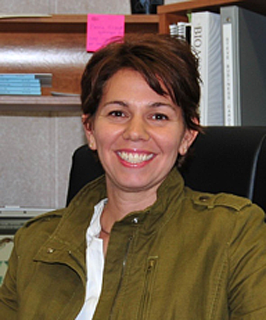VCEHP105: Mosquito Biology and Control
Course Description:
VCEHP105: Mosquito Biology and Control is fifth in a eleven-course learning series.
This course will provide environmental health professionals with the basic knowledge needed to participate in mosquito control activities based on an IPM approach.
It will also provide the environmental health professionals with knowledge that can assist in the management and control of mosquitoes and their associated pathogens through an understanding of mosquito biology and habitat. Information on the methods of mosquito control using an IPM approach can be provided by environmental health professionals to the public and local officials when faced with the risk of mosquito-borne illness.
Target Audience
Public Health, First Responders, Emergency Response and Preparedness Professionals and Healthcare Practitioners
Learning Objectives
- Describe basic mosquito biology
- Recognize the importance of different mosquito classifications, distributions, and habitats
- Understand different methods for mosquito prevention and control
- Describe the advantages of using an IPM approach
- Understand key
Instructor:

Claudia Riegel, MS, PhD
Claudia Riegel, MS, PhD earned an undergraduate degree at Purdue University, a Master’s at the University of Georgia, and a Ph.D. from the Entomology and Nematology Department at the University of Florida in 2000.
Directly out of school, she was hired by Dow AgroSciences and moved to Louisiana. Responsibilities included testing of new enhancements to the products in the portfolio, provide technical support for the commercial organization in the southeast and southwest, and collaborate with government organizations, universities, and customers on topics in pest management. In February 2004, she decided to focus on Formosan subterranean termites and became Principal Research Entomologist for the City of New Orleans Mosquito and Termite Control Board.
In 2006, she became Assistant Director, and in 2010 she was promoted to Director of the of the Board. In this capacity, she provides technical support for the City of New Orleans and the pest control industry, conducts independent research, collaborates with industry for enhancements of existing products and testing of new products, and collaborates with government organizations and universities on a variety of research projects involving rodents, mosquitoes, termites, and a variety of other urban vectors and pests.
Providing information about termites, mosquitoes, rodents, and pest issues after natural disasters to the pest control professionals and to the public is part of her job responsibilities. She leads three academies (termite, pest, and mosquito) the City of New Orleans offers. She participates in several professional societies at the national and local level. In addition, she enjoys traveling and speaks at pest control and public health meetings around the country.
Available Credit
- 1.00 Participation/CETulane Professional and Continuing Education (PaCE) awards 1.00 hour(s) of credit for completing VCEHP105: Mosquito Biology and Control
Price
Required Hardware/software
System Settings
This course is designed to work most effectively if your computer and internet connection meet certain minimal requirements. This course can be accessed using a Windows 10 PC or a Mac with High Sierra1, Mojave, or Catalina. Pop-up blockers should be disabled when viewing the course. Internet Explorer 11 (for Windows 10), or the current version of Google Chrome, Mozilla Firefox, or Apple Safari (for Windows 10 and or Mac) is required. Many of our courses require Java and JavaScript enabled.
Links to External Websites
Links to websites outside this course will open in a new window or tab. Some browsers may minimize the course window. If this occurs, maximize the course window to return to the course.
Adobe Acrobat Reader (for desktops and laptops)
Adobe Acrobat Reader is required to access some documents in this course. If you need to download a free copy of Acrobat Reader, click here.
Internet Connection Speed
A minimum download speed of 1.5 Mbps is recommended for an optimal experience, which is commonly the speed associated with a basic DSL or a cellular/satellite connection. A faster connection, such as cable or fiber service, with further enhance your online experience. A Wi-Fi connection is generally acceptable, but it is dependent upon one of the two services mentioned above. You can check your internet connection speed at http://www.speedtest.net/.

 Facebook
Facebook X
X LinkedIn
LinkedIn Forward
Forward